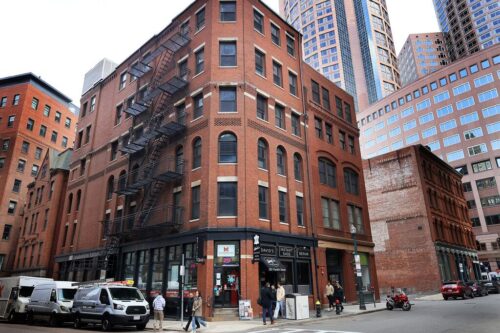Despite threats both to the value of downtown office towers and to federal research funding that flows through the city, Boston’s economy is among the strongest in the country and the city has a stable financial outlook, two premier credit rating agencies said this month.
For the 12th consecutive year, Boston has maintained AAA bond ratings from both Moody’s Ratings and S&P Global Ratings — an achievement Chief Financial Officer Ashley Groffenberger likened to winning the “finance Super Bowl.”
“As the current federal administration sows economic chaos and targets the very industries that Boston relies on — health care, life sciences, higher education, climate technology — Boston remains determined to fight back against illegal attempts to undermine our economy and our communities,” Boston Mayor Michelle Wu said Wednesday. “Our AAA bond rating today is proof that despite this federal administration’s best attempts to tear down the pillars of our economy, Boston is well positioned to weather the storm.”
The AAA ratings come amid Wu’s reelection campaign — she faces off this fall against Josh Kraft, a Dorchester nonprofit leader and son of New England Patriots owner Robert Kraft — along with ongoing concerns from the business community and elsewhere about the city’s fiscal health in the wake of the COVID-19 pandemic and its impact on office values.

Moody’s noted Boston’s “sound fiscal management” and economic resilience, driven by a diverse mix of industries and anchored by world-renowned health care and educational institutions. However, analysts noted that uncertainty regarding tariffs, immigration, and cuts to the National Institutes of Health funding and other federal support for research and education could lead to higher unemployment, slower economic growth, and demographic shifts.
“The city’s resiliency will be challenged over the next several years,” Moody’s Ratings analysts Nicholas Lehman and Thomas Jacobs wrote in a May 8 report.
Another challenge could come from declining values of commercial real estate. Last year, the city’s commercial property tax base fell in value by 2.9 percent — its first such decline in 14 years.
Multiple office properties have recently sold at prices far below their assessed values. The 36-story One Lincoln St. tower, for example, sold at foreclosure auction for $400 million earlier this year after a $1.1 billion refinancing in 2022. The property’s current assessed value is $588 million.
And the 32-story office tower at 99 High St. sold last month for $227 million, some $100 million less than its assessed value.
“We are very concerned and monitoring the ongoing transition that cities across the country and downtowns, in particular across the country, are experiencing with macroeconomic trends that are really reshaping the purpose of commercial office buildings and the occupancy of them,” Wu said Wednesday.
Though some 71.1 percent of Boston’s $4.8 billion budget for fiscal 2026 is generated by property taxes, declining office values shouldn’t translate into a “major revenue disruption” for the city, Groffenberger said. State law restricts how much a city can raise property taxes in any year, and after trying unsuccessfully to do so last year, Wu has again filed a home-rule petition seeking to exceed that limit on commercial property to avoid a steep increase in residential property taxes.
The city’s assessing department has started the process to determine property values for fiscal 2026, Assessing Commissioner Nick Ariniello said Wednesday. That includes asking property owners for information on vacancy, asking rents, and other transactions that the city can use for its fiscal modeling.
“Individual data points kind of help key us in on areas that we maybe want to ask more about, but they don’t define the market for this,” Ariniello said.
What’s more, despite last year’s 2.9 percent commercial property value decline, Moody’s noted it would take a multiyear decline of 10 percent or more in the assessed value of commercial properties to lead to a downgrade in the city’s bond rating.

The AAA ratings have been granted as the city prepares to issue a nearly $500 million general obligation bond next week, which Groffenberger said will fund close to 200 projects, including renovations at schools, parks, and playgrounds, along with new libraries, community centers, and pools, and energy improvement and infrastructure projects. The AAA rating helps Boston sell those bonds at lower interest rates, saving up to $250,000 annually, or $5 million over the life of the bond, that would have otherwise gone to debt service, Groffenberger said.
“This means we can spend more of our taxpayer dollars on the critical services and priorities that residents expect, instead of the costs associated with financing,” Groffenberger said. “It should also give residents the confidence that city leadership is acting in a strong, responsible way with their resources.”
Why a weaker Harvard would mean a weaker MassachusettsAnother downtown office tower, at 99 High Street, just sold at a deep discountAs Mayor Wu seeks a second term, some fear her commitment to progressive causes has dimmed



Comment count: